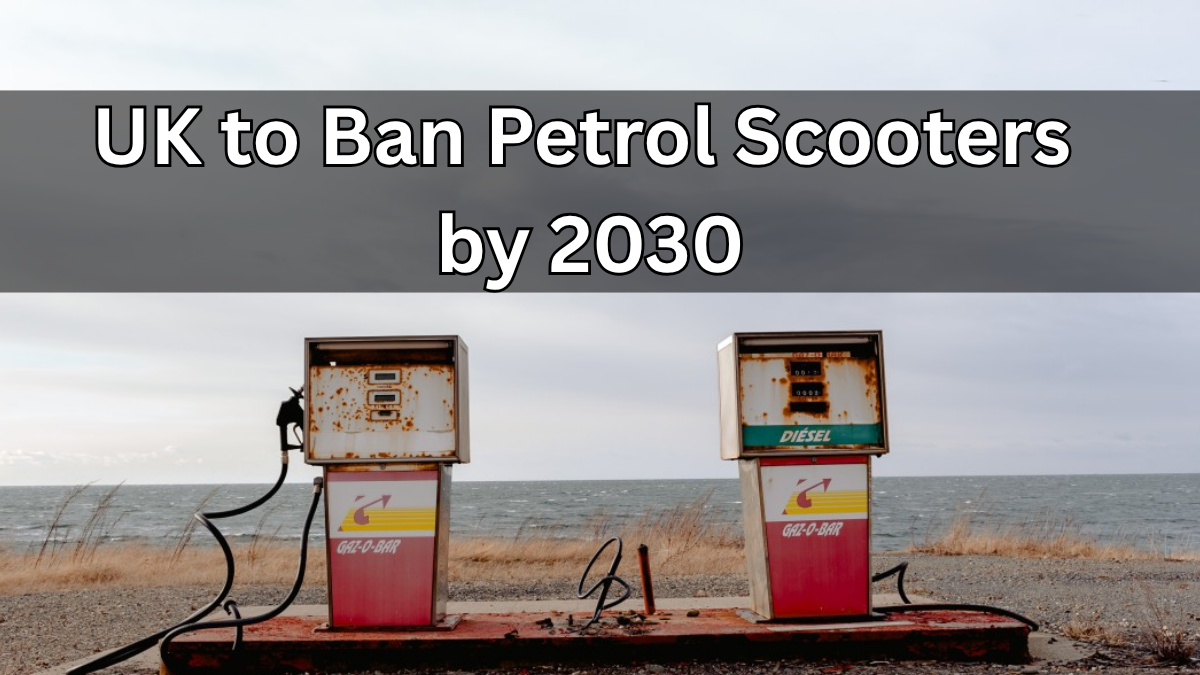As the UK moves toward a greener transport future, one bold policy stands out: the UK petrol scooter ban 2030. This means petrol-powered scooters will be phased out entirely, giving way to electric vehicles that align with the country’s climate goals. If you currently own or plan to buy a petrol scooter, here’s what you need to know about UK vehicle regulations, petrol scooter replacement options, and how to stay ahead of the curve.

What the Petrol Scooter Ban Means?
What’s Changing?
-
The sale of new petrol scooters will be banned by 2030.
-
Existing petrol scooters will gradually be phased off the roads.
-
Electric scooters and other zero-emission alternatives will take over.
Why Is the Ban Happening?
-
To reduce the UK’s carbon footprint and improve urban air quality.
-
To comply with international environmental agreements.
-
To align with evolving UK vehicle regulations, petrol scooter replacement policies.
Who Is Affected?
-
Owners of petrol scooters.
-
Potential buyers looking for long-term scooter solutions.
-
Manufacturers and service providers adapting to electric mobility.
Impact on Scooter Owners
If you own a petrol scooter, it’s important to start planning your next steps as the UK petrol scooter ban 2030 approaches.
Financial Considerations
-
Expect to invest in a new electric scooter before 2030.
-
Government subsidies may be available to ease the transition.
Technological Shift
-
Electric scooters offer improved efficiency and reduced maintenance.
-
Many brands are already rolling out feature-rich, eco-friendly options.
Regulatory Updates
-
Licensing, insurance, and MOT rules may change as the shift unfolds.
-
Stay up to date on announcements related to UK vehicle regulations, petrol scooter replacement.
Petrol vs Electric Scooters: A Comparison
| Feature | Petrol Scooters | Electric Scooters |
|---|---|---|
| Fuel Source | Petrol | Electricity |
| Emissions | High carbon emissions | Zero emissions |
| Maintenance | Frequent and expensive | Low and infrequent |
| Cost per Mile | Higher (due to fuel) | Lower (electricity is cheaper) |
| Noise Level | Loud | Quiet |
| Legal Compliance (2030+) | Non-compliant with future laws | Fully compliant with UK vehicle regulations |
How to Prepare for the 2030 Ban
Stay Informed
-
Follow updates from the Department for Transport and local councils.
-
Look for changes in UK petrol scooter ban 2030 policies or enforcement timelines.
Start Exploring Alternatives
-
Research electric scooters available in the UK market.
-
Choose models that meet your commuting needs and budget.
Financial Planning
-
Begin budgeting for a scooter upgrade.
-
Check if your region offers incentives for petrol scooter replacement.
Get Support from Communities
-
Join online groups of electric scooter owners.
-
Share tips, experiences, and product recommendations.
FAQs
What does the UK petrol scooter ban 2030 mean for current scooter owners?
By 2030, petrol scooters will no longer be road-legal for new use. While existing models may have a grace period, owners should prepare for petrol scooter replacement in line with future transport policies.
Will I be compensated or offered a subsidy to switch to electric?
While not guaranteed, the government is likely to offer some financial incentives as part of the UK petrol scooter ban 2030 to encourage adoption of electric scooters.
Are electric scooters actually more affordable?
Yes. Over time, electric scooters have significantly lower running and maintenance costs. They also align better with UK vehicle regulations, petrol scooter replacement programs.
Can I still use my petrol scooter after 2030?
This depends on how the final regulations are rolled out. Some petrol scooters may be grandfathered in for a few years, but expect stricter limitations or bans in urban areas.
Conclusion
The UK petrol scooter ban 2030 isn’t just about limiting pollution—it’s about transforming urban transport into a smarter, greener ecosystem. If you act now, you can make a smooth transition ahead of the rush. Stay informed, plan smartly, and look at the UK vehicle regulations, petrol scooter replacement landscape as an opportunity to embrace innovation and environmental responsibility.
Click here to learn more
